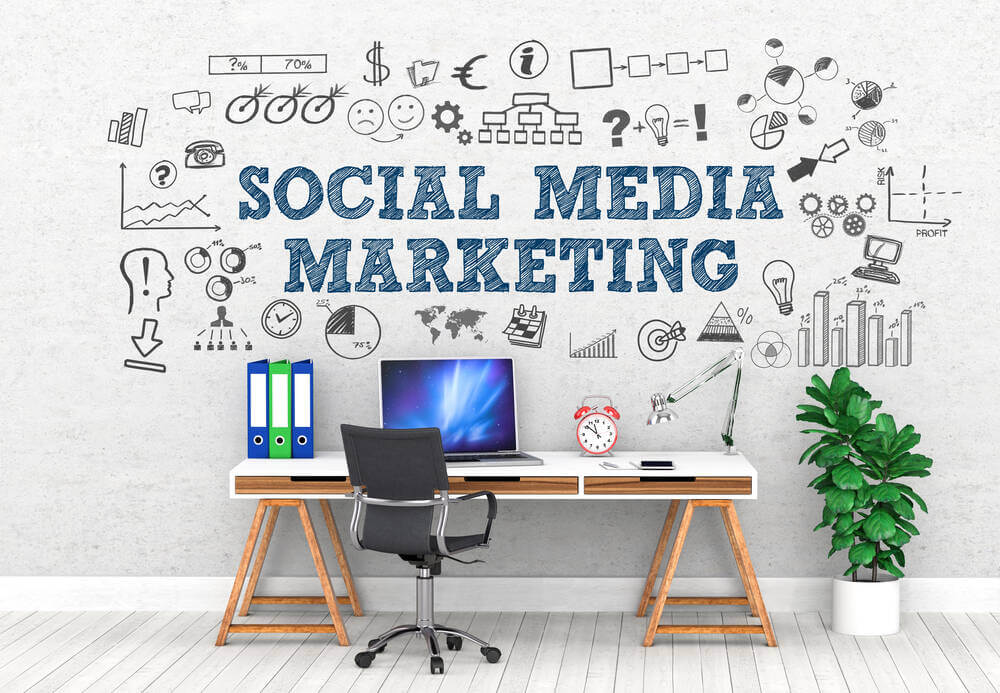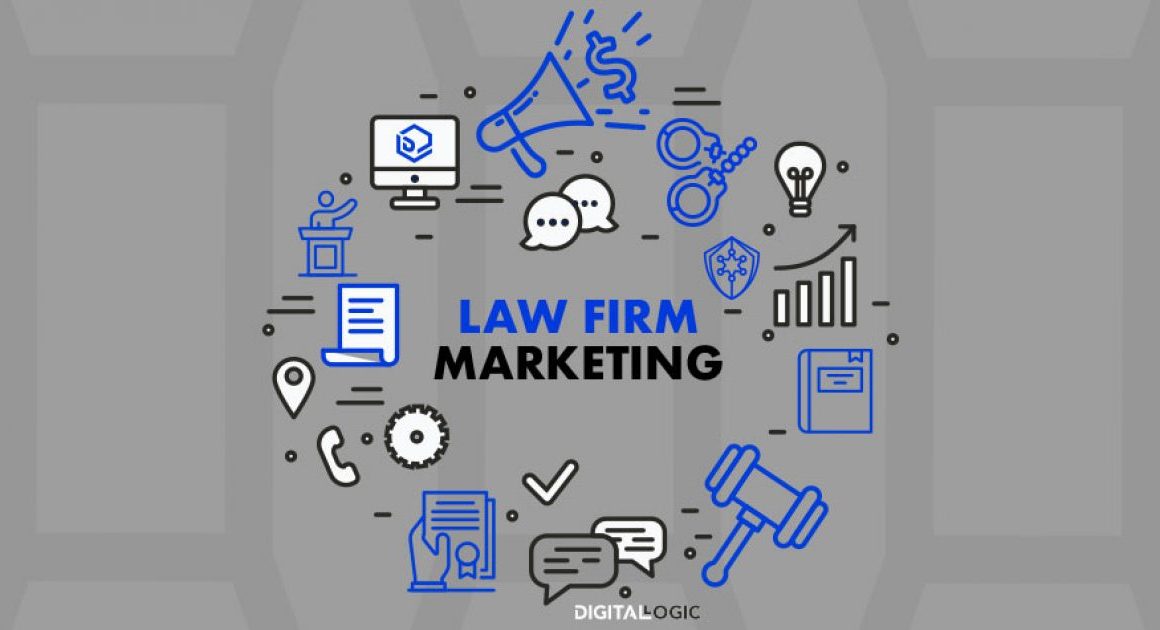The rapid growth of the Internet of Things (IoT) has played a significant role in standardizing digital marketing. Since a significant portion of the world population has access to IoT and IoT-enabled devices, digital marketing channels, like social media, are a treasure trove for businesses looking to expand their reach.
Social media is a handy tool for small businesses, especially given the rise of e-commerce. Because of social media, small businesses can easily market their products and services online at little to no cost. The features embedded in social media applications provide marketers with the tools needed to facilitate customer engagement, spread brand awareness, and generate leads.
What Is Social Media Marketing?
Social media marketing is when brands and businesses use social media for marketing their products and services. Social media usage is incredibly widespread and is only growing. Therefore, such a platform is ideal for small businesses to promote what they have to offer because it has a substantial potential audience.
However, many businesses, including your competitors, use social media as part of their digital marketing strategy. Therefore, success with social media marketing necessitates strategic planning in order to stand out from the competition.
What Value Does Social Media Bring To Small Businesses?
Social media is valuable for small businesses in various ways. One of the greatest sources of value is that social media marketing is cost-effective. Even if you’re utilizing paid ads, the rates are generally cost-effective. That said, here are additional insights into how social media marketing can add value to your small business:
- Helps To Build Customer Relationships
Strong and healthy customer-client relationships can lead to increased customer loyalty and satisfaction, as well as an increase in the number of return buyers. Social media makes it possible for businesses to communicate with their audience. Customers, after all, want brands and businesses that are proactive and responsive on digital marketing platforms.
Most users consume content through digital marketing channels, like social media, and usually follow their favorite brands. Your role as a business is to provide engaging material for your audience, interact with them directly in the comments section, and respond to inquiries via direct messaging. Communication is key to building and maintaining any relationship, including the relationship you have with your customers.
- Helps Generate Better Audience Insights
Most social media platforms have built-in analytics tools that enable you to track and analyze various metrics about your audience and marketing campaigns. Social media analytics can track post engagements, age demographics, and geographical analytics, among other things. Post-engagement analytics can also help you to design and structure your content. In addition, these analytics can help you to understand your audience better and develop effective tailored marketing campaigns.
- Lead Generation
You can use social media marketing to generate new leads for your business. Social media platforms can provide you with all the data, tools, and templates you need to design effective targeted marketing campaigns, which can aid in generating more leads.
There are several ways to generate leads. For example, you can use paid Facebook advertising, hashtags, and promos. Or, you could also use the geo-targeting feature that allows you to choose countries or regions your advertisement will appear in. This feature enables you to tailor advertisements based on location, which can improve lead generation.
- Validation
Your online presence and branding are key factors in social media validation. Validation entails things like reviews, comments, and other people’s references. Social media platforms, like Facebook, feature official profiles and corporate accounts where customers can leave reviews for your goods or services.
Nevertheless, when people visit your social media pages, they should be able to tell whether your account is genuine by checking your activities and whether you’re verified. Social media account verification is essential because it shows authenticity So, if you haven’t yet, consider verifying your business social media accounts as soon as possible.
- Helps Build Brand Identity and Awareness
How people perceive your brand matters. Your brand identity is what distinguishes you from your competitors. People must be able to relate to the distinct personality that your company has on a human level. This is significant because consumers want to deal with actual individuals rather than impersonal businesses. Humans aren’t robots. Therefore, to thrive on social media, you need to add some personality to your brand to make interactions natural and engaging.
Additionally, brand awareness is equally important. The objective is to make your brand more visible on social media to increase customer engagement and conversion rates. People can’t buy products that they don’t know about. So, you need to proactively push your products or services to your potential customers. Not only will better brand awareness promote your business on social media, but it can even make it trend.
Guide To Effective Social Media Marketing For Small Businesses
The social media market space has become flooded, especially with the advent of e-commerce. So, it can be daunting for small businesses to navigate this arena. But, it need not be. Below is a guide for how you can use social media to help elevate your small business.
- Develop A Social Media Marketing Strategy
Blindly using social media for marketing may cost you. You might be active across multiple platforms and still get little to no results. Therefore, you need to develop social media marketing strategies that align with your goals.
For example, you could run an online promotional campaign on Facebook (strategy), leading to increased brand awareness (goal). If, at all, you’re unsure about how to create a winning strategy in this instance, you can consult any Facebook advertising agency.
Moreover, it’d be ideal to use both organic and paid strategies to achieve the best outcomes in your marketing campaigns. For instance, you may increase the reach of a post that’s performing well on Facebook by boosting it. That’ll be money well spent.
- Identify Your Target Audience
If you want your social media marketing campaign to succeed, you need to understand your audience first. In order to identify your audience, you need to conduct market research. It should detail who your ideal customers are. An accurate customer profile defines the target market for your products. With that information, you can create a social media marketing strategy.
Remember, every social media platform is unique and is best suited for different types of content and marketing. Platforms like Facebook are more youthful, while platforms like LinkedIn are meant for a professional audience. So, if your target audience is youthful, launching your campaign on a platform like Facebook will likely yield better results.
- Set Clear Goals
It’s important that you set measurable social media marketing goals for your business. Goals not only give you something to aim for, but they also provide a good yardstick with which you can measure the success of your social media marketing campaigns. Here are some examples of social media goals: increasing engagement, brand awareness, sales, and conversion rates, and driving website traffic.
Remember that you may have to modify your social media strategy several times before you start seeing any results. You may not get your strategy right the first time, but with some modifications, you can get there. What’s important is to have a clear goal.
- Choose The Right Platform
There are several social media applications to choose from, and a number of factors may influence what your ideal platform is. But, the nature of your product or service and its brand identity will play a huge part in determining the right platform. For example, if your brand is perceived as playful and happy-go-lucky, you need to double down on building a following on applications like Instagram or TikTok, which have a youthful audience.
Furthermore, the social media platform you choose will likely be heavily influenced by your target market. So, for example, if young adults form a significant part of your target market, you may consider choosing channels like Instagram or Facebook, where they frequent the most. Facebook has the highest number of active users and is great for building brand awareness. Or, if your target market is predominantly female, you could opt for social media applications like TikTok, where a large percentage of users are female.
It’s important to note that all social media platforms have their strengths and weaknesses. It’d be best to be in the know about these strengths and weaknesses before using any platform. Additionally, always try to create content that plays to your chosen platform’s strengths.
- Set A Budget
While social media marketing is technically free, there are still some costs you need to budget for. These include labor and management expenses, design fees, money you’ll spend on paid partnerships with influencers, and fees for social media marketing tools.
Here are some of the aspects of social media marketing you may have to budget for:
- Influencer Marketing – You can promote your brand and expand your following by partnering with online influencers with a sizable social media following. Different influencers will have different pricing structures. But, it’s important to look for ones who fit your budget and meet your criteria.
- Paid Advertising – Paid social media advertising is usually affordable.
- Content Creation – Creating quality content necessitates hiring expert copywriters, cinematographers, videographers, and graphic designers. Depending on the experience level of the experts and the project’s complexity, these services can be pricey. However, you could outsource some of these services from online freelancers at a lower price.
- Social Media Management Tools – Social management tools make managing your tasks much easier. But, most of them have paid subscriptions.
While social media marketing is relatively cost-effective, if you use a lot of paid services, it could take up a significant portion of your digital marketing budget.
- Create A Content Calendar
Once you have your social media strategy in place, you must develop a content calendar outlining how often and what type of content you’ll be publishing on your social media pages.
Keeping up with social media posts can be difficult, especially if you publish posts daily or weekly. So, you could consider investing in social media management tools to help you keep track of your posts. Plus, most of these tools have a dashboard that can integrate all your social media accounts into one, so you can see statistics of all your social media accounts in one place.
- Choose The Right Tools
Managing all your social media platforms can be overwhelming. But, you can utilize several social media management tools to help you with tasks like content scheduling, social listening, and engagement tracking. These tools have unique combinations of strengths and weaknesses. So, you have to choose based on your needs.
- Consistently Track And Improve Results
Based on the goals you’ve set for a social media marketing campaign, you must be able to track whether your strategy is effectively moving you toward your goals. You need to constantly keep tabs on the progress of your campaign because the whole objective is to achieve those goals to get a return on your investment. Therefore, you need to actively track the relevant metrics and look for opportunities to improve the effectiveness of existing strategies.
Thankfully, you can easily track metrics through the in-built analytics tools on social media platforms. Such tools should display metrics, like the number of followers, post engagements, impressions, and click-through rates. The data that you gather from these metrics can be used to improve existing and future marketing campaigns. However, should you want a more detailed overview of social media analytics, you can invest in tools with advanced analytics and tracking features.
Conclusion
Social media marketing is an effective digital marketing solution any small business can utilize to increase its sales. Social media is a versatile tool that allows businesses to reach millions of users worldwide. Plus, social media is still a growing global marketplace. This potential audience on social media will grow as more people get access to the Internet and IoT-enabled devices.
Small businesses should invest in social media marketing since the many tools and features available on social media platforms make it easy to increase brand awareness, at a cheap cost. You simply need to determine which social media networks your target audience uses, create accounts on those platforms, and interact with your audience to increase sales. However, try not to generalize all platforms. Instead, create content that plays to the strength of the platform you’re using.
Moreover, while learning how to use social media marketing efficiently may be a steep learning curve for small business owners, there are ways to shorten the cycle. The first approach is to use social media management tools. The second option is to hire a reputable social media agency to assist you with all of your social media concerns and to design an effective strategy.



